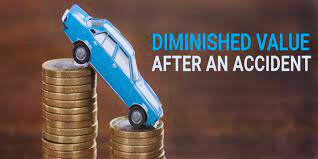In the aftermath of a car accident, understanding the intricacies of car depreciation and compensation is paramount. We delve into the factors affecting car depreciation after an accident and provide valuable insights to maximize your car’s value.
The Impact of Accidents on Car Depreciation
Car accidents invariably lead to depreciation, affecting the overall value of your vehicle. Factors such as the extent of damage, repair history, and market demand significantly influence depreciation rates. It’s essential to comprehend these variables to navigate the post-accident process effectively.
Extent of Damage
The severity of damage sustained by your vehicle plays a pivotal role in determining depreciation. Major structural damage or extensive repairs often result in a substantial decrease in value. It’s crucial to assess the extent of damage accurately to gauge the impact on depreciation.
Repair History
The quality of repairs undertaken post-accident directly affects depreciation rates. Inadequate repairs or visible signs of damage can significantly diminish your car’s value. Opting for reputable repair services and maintaining comprehensive documentation can mitigate depreciation.
Market Demand
Market demand fluctuations can influence depreciation rates post-accident. Factors such as consumer preferences, economic conditions, and industry trends contribute to varying demand levels. Staying informed about market dynamics empowers you to make informed decisions to minimize depreciation.
Understanding Car Depreciation Calculators
Car depreciation calculators serve as invaluable tools for estimating post-accident depreciation and potential compensation. Leveraging these calculators enables you to make data-driven decisions and negotiate effectively with insurance providers.
Maximizing Compensation: Navigating the Claims Process
Efficiently navigating the claims process is essential to maximizing compensation and mitigating financial losses. Understanding key strategies and leveraging professional assistance can significantly impact the outcome of your claim.
Documentation
Thorough documentation of the accident, including photographs, repair invoices, and insurance correspondence, strengthens your claim’s validity. Organizing comprehensive documentation expedites the claims process and facilitates accurate compensation assessment.
Professional Evaluation
Seeking professional evaluation from certified appraisers or mechanics provides an objective assessment of your vehicle’s post-accident value. Their expertise enhances your negotiation position and ensures fair compensation for depreciation-related losses.
Negotiation Tactics
Employing effective negotiation tactics during discussions with insurance adjusters is crucial to securing optimal compensation. Presenting compelling evidence, highlighting repair quality, and demonstrating market research can bolster your negotiation stance and yield favorable outcomes.
Frequently Asked Questions (FAQs)
1. How does car depreciation affect insurance claims after an accident?
Car depreciation significantly impacts insurance claims by influencing the assessed value of the vehicle post-accident. Insurance providers consider depreciation when determining compensation, which may result in lower payouts than the vehicle’s original value.
2. Can I challenge the insurance company’s depreciation assessment?
Yes, you can challenge the insurance company’s depreciation assessment by providing evidence supporting a higher valuation. Thorough documentation of pre-accident conditions, quality repairs, and market research can strengthen your case and potentially increase compensation.
3. Will my car insurance cover depreciation after an accident?
While most standard car insurance policies cover repairs or replacement costs after an accident, they typically do not reimburse for depreciation. However, specialized coverage options, such as gap insurance or diminished value coverage, may mitigate depreciation-related losses.
4. How can I minimize car depreciation after an accident?
Minimizing car depreciation after an accident requires prompt and high-quality repairs, thorough documentation, and strategic negotiation with insurance providers. Additionally, maintaining regular maintenance, addressing minor damages promptly, and preserving comprehensive service records can help mitigate depreciation over time.
Conclusion
Navigating car depreciation and compensation post-accident necessitates a comprehensive understanding of relevant factors and strategic approaches. By leveraging insights into depreciation determinants, utilizing car depreciation calculators, and adopting effective negotiation tactics, you can maximize your compensation and preserve the value of your vehicle.

